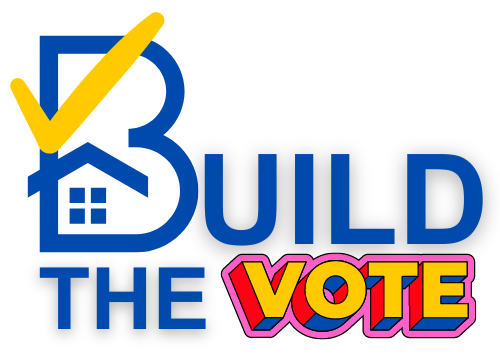Roles of Charlotte County Elected Officials
Welcome to the hub for understanding who runs Charlotte County and how they impact your daily life! Whether you're new to voting or just looking to get more involved, it's important to know who your elected officials are and what they do. From making laws to managing schools, each role plays a crucial part in shaping our community.
Why It Matters:
Your vote isn't just a checkmark on a ballot; it's a powerful tool that can influence everything from local policies to educational standards. By understanding the responsibilities of each official, you can make more informed decisions at the polls and ensure your voice is heard on the issues that matter most to you.
Explore the Roles:
Supervisor of Elections
Visit Charlotte County Supervisor of Elections WebsiteMission:
The mission of the Charlotte County Supervisor of Elections is to provide a responsive, transparent, and professional approach to conducting elections that will inspire trust and confidence in their accuracy, efficiency, and fairness, while promoting maximum participation of all eligible citizens in the election process.
Core Values:
Transparency:
Openness in Operations: Ensure transparency in all operations, including public tests, Vote-By-Mail processes, canvassing, and data requests.
Real-Time Updates: Provide real-time updates on the website for voter turnout, early voting wait times, and election results.
Operational Efficiency:
Efficient Procedures: Implement all necessary procedures, protocols, and processes to provide efficient and effective voter services while adhering to statutory regulations.
Fiscal Responsibility:
Be fiscally responsible and a good steward of public trust, utilizing data to make effective decisions regarding equipment and ongoing assessments.
Quality Control:
Continuously assess and maintain high-quality standards within the organization.
Service:
Nonpartisan Commitment:
Deliver nonpartisan service to all voters.
Citizen Engagement:
Serve all citizens of Charlotte County and educate them about the registration process and the ease of voting.
Responsiveness:
Be responsive to inquiries and requests from the community.
The Charlotte County Supervisor of Elections is dedicated to ensuring that elections are conducted transparently, efficiently, and fairly. By fostering trust and promoting voter education, the office aims to maximize participation and ensure that every eligible citizen has the opportunity to vote.
Board of County Commissioners
The Board of County Commissioners is the heart of our county's government. Think of them as the decision-makers who set policies, enact ordinances, and adopt resolutions. They are in charge of creating the budget and deciding how funds are distributed to various county departments and divisions.
What They Do:
- Make laws and policies.
- Approve the county's budget.
- Appoint key officials like the County Administrator and County Attorney.
Meetings: Twice a month.
Members: Five commissioners elected countywide.
County Court Judge
County Court Judges handle many of the cases you might hear about on the news, from traffic offenses to small claims. They serve six-year terms and must be residents of Charlotte County, with at least five years of membership in The Florida Bar.
What They Do:
- Handle civil disputes up to $15,000.
- Oversee most non-jury trials, including misdemeanors and traffic offenses.
Clerk of Circuit Court and Comptroller
The Clerk of Court manages a lot of important paperwork and records for the county. They also serve as the Comptroller, overseeing financial operations for the county.
What They Do:
- Record important documents like property deeds and court judgments.
- Manage jury duty, court records, and fines.
- Handle financial services for the county, including payroll and investments.
Property Appraiser
Visit Charlotte County Property Appraiser WebsiteThe Property Appraiser determines the value of properties for tax purposes and processes exemption applications.
What They Do:
Assess property values.
Handle exemption applications.
Budget is reviewed by the Florida Department of Revenue.
Sheriff
Visit the Charlotte County Sheriff's Office WebsiteMission:
The Charlotte County Sheriff's Office is dedicated to providing quality law enforcement, detention, court security, and homeland security services to the citizens and visitors of Charlotte County.
Organizational Structure:
- Executive Offices of the Sheriff: Oversee all operations and strategic planning.
- Bureau of Law Enforcement: Handle all aspects of law enforcement, including patrol, investigations, and community policing.
- Bureau of Support Services: Provide essential support functions such as communications, records management, and property control.
- Bureau of Detention: Manage the county jail and detention services, ensuring the safe and secure custody of inmates.
- Intelligence Division: Focus on gathering, analyzing, and disseminating intelligence to prevent and respond to criminal activities.
- Professional Standards and Training Division: Ensure high standards of professionalism through ongoing training and internal reviews.
- Finance: Manage the financial operations of the Sheriff’s Office, including budgeting and resource allocation.
The Sheriff, as the chief law enforcement officer of the county, is responsible for ensuring the safety and security of all residents and visitors. By organizing the office into specialized groups, the Sheriff’s Office can effectively fulfill its mission and uphold the law with integrity and dedication.
School Board
Visit Charlotte County Public Schools WebsiteThe School Board oversees the entire school system, working to identify needs and recommend improvements.
What They Do:
- Manage the school system.
- Advise the School Board on educational matters.
- Implement state and local education policies.
Tax Collector
Visit Charlotte County Tax Collector WebsiteThe Tax Collector manages the collection of taxes and fees for the county, acting as the local DMV.
What They Do:
- Collect and distribute taxes and fees.
- Register motor vehicles and boats.
- Issue driver licenses and various other licenses.
City Council
 Button
ButtonAs Legislative Branch of City Government:
- Enacting Ordinances and Resolutions: Responsible for creating laws and policies that guide the city's operations.
- City Manager Administration: Work closely with the City Manager, who oversees the implementation of these laws and policies.
Structure and Elections:
- Councilmembers: Five members elected at-large by Punta Gorda voters.
- Term: Serve for two years, with staggered terms.
- Elections: Held in November.
- Mayor and Vice-Mayor: Elected by the City Council at the first meeting after an election.
Meeting Schedule:
- Regular Meetings: First and third Wednesday of each month at 9:00 a.m. in Council Chambers, City Hall.
- Public Access: Meetings are open to the public, livestreamed on YouTube, and broadcast on Charlotte County TV20 on Sundays at 12 p.m.
Additional Responsibilities:
- Board and Committee Appointments: Councilmembers are appointed to various boards and committees each year to represent City Council.
The City Council of Punta Gorda plays a crucial role in shaping the future of our community by creating and overseeing the implementation of important policies. Active participation and understanding of their duties can help ensure our city's growth and development align with the needs and desires of its residents.




